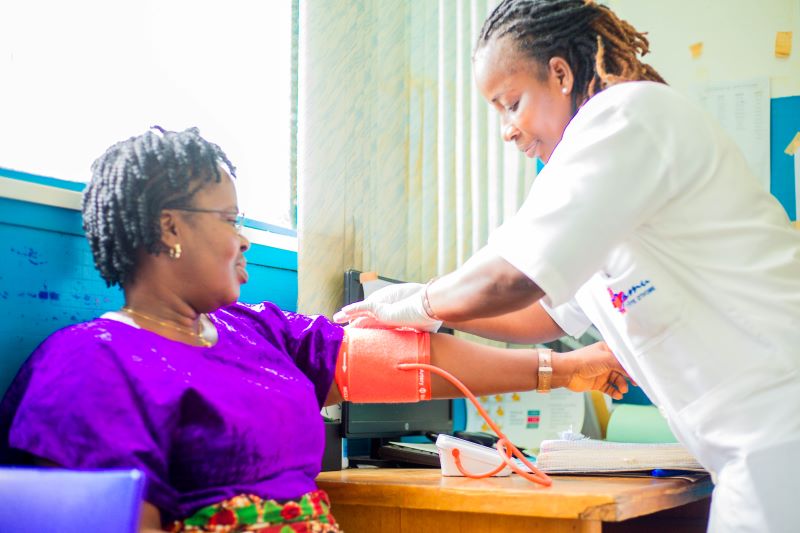“How the ECHO Model works was so different than traditional training,” says Konan Alphonse, a consultant supporting Project ECHO’s work in francophone Africa. “When we first started, people thought, especially because we were not going to pay people to receive training, this was too different to work.”
Today, the ECHO network in Cote d’Ivoire demonstrates the effectiveness of the ECHO Model. Our partners have tackled long-COVID, mental health, various noncommunicable diseases, and their longest-running programs for cervical cancer and HIV.
This work is led by the National Public Health Institute (Institut National de Santé Publique), an ECHO Superhub* that has been charged by the Ministry of Health to implement the ECHO Model across Cote d’Ivoire, including overseeing its 15 ECHO Hubs.
Growth with ECHO’s Quick-to-Scale Training
In 2017, the Ministry of Health needed to train workers quickly on HIV as part of the U.S. President’s Emergency Plan for AIDS Relief (PEPFAR). They turned to INSP to implement the ECHO Model and reach 3,000 health care workers in six months.
Then, when COVID-19 struck, the Ministry of Health needed a solution to guide pandemic response efforts during lockdowns. INSP’s francophone Africa COVID-19 ECHO sessions reached more than 10,000 health care workers. Today, INSP runs localized trainings to launch new ECHO Hubs and supports the World Health Organization’s ECHO programs for francophone Africa.
Mentorship and Communities of Practice for All
Dr. William Yavo, a professor of parasitology at INSP and the Superhub country coordinator, expects growth in Cote d’Ivoire’s public health outreach. “We coordinate ECHO with the priorities of the Ministry of Health, and we also ensure that local partners have what they need: video conferencing equipment, Internet connection and team support,” says Yavo.
“As we lay this groundwork, we can expand programs for all topics: diabetes, cardiovascular disease, malaria, emergency health,” he adds.
One ECHO participant, a young doctor who grew up in the poorest area of Cote d’Ivoire’s largest city, Abidjan, realized she could still become specialized even while working in that rural area, which was important affirmation for her work and career. She shared, “When I come to the ECHO sessions, I have hope because when I give advice or recommendations, they are helpful to others. I realized that I am learning the right things in my career, and I will continue to learn, even in a rural area.“
New Opportunities for Providers in Francophone Africa
In the global ECHO movement, Cote d’Ivoire has become an important partner in reaching other francophone countries in Africa. “So much of what we do here in Cote d’Ivoire is helping other francophone Africa partners effectively run ECHO sessions,” says Alphonse. “We help people understand how ECHO can be implemented and how it simplifies ongoing training, for any field, at no cost to partners or participants.”
Dr. Halimatou Diop, a professor of virology and molecular biology at Cheikh Anta Diop University in Dakar, Senegal, launched a Gender Equity and Leadership ECHO Program. Focused on women in research and academic settings, Diop says the program has been successful and will have a second cohort. “People are very enthusiastic to join the program. For young women here working in the university, we mentor them on what they might encounter and how to develop leadership skills. We are very grateful to the ECHO Model, because otherwise we could not come together.”
To learn more about Project ECHO in Africa, email Dr. Caroline Kisia, director.
*An ECHO “Superhub” is an organization that trains and supports new ECHO partners.
Photo Credit: The featured image in this story was captured by photographer Mme Yao Chantal in Côte d’Ivoire for Project ECHO, November 2023.



